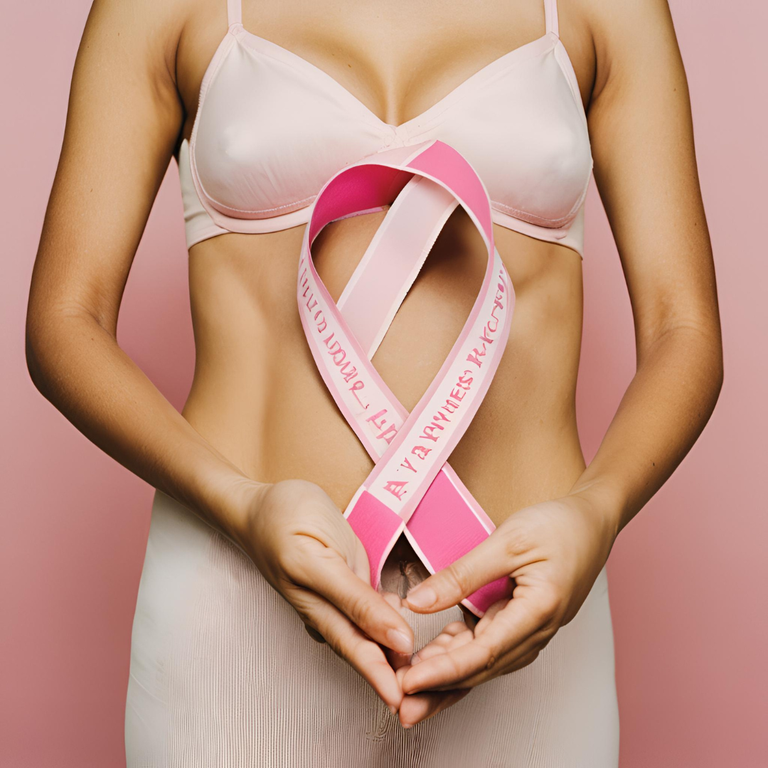Breast Cancer and Depression: A historical and Modern Perspective.
 [AI generated]
[AI generated]
Breast Cancer Awareness Month is a time to recognize the significant strides we've made in understanding and treating breast cancer, one of the most common cancers affecting women worldwide. While much of the focus has been on treatments like chemotherapy, surgery, radiotherapy, and immunotherapy, there has been growing recognition of the emotional toll that breast cancer takes—especially in relation to depression and anxiety.
Although early detection and effective treatment can help remove cancer, breast cancer often leaves behind emotional scars that can be just as challenging to heal.
A Brief History of Breast Cancer
Historically, medical knowledge about breast cancer was extremely limited, which meant that treatment options were very basic. In ancient Egypt, for example, breast cancer was described in medical writings, but surgery was the only known treatment. Later, during the Middle Ages and Renaissance, diseases like cancer were often attributed to imbalances in the body’s "humors"—fluids thought to control health. Women with breast cancer faced significant stigma, often experiencing social isolation due to misunderstandings and speculations about the disease.
In those times, women with breast cancer suffered emotionally, but their distress was either overlooked or dismissed as a sign of moral or emotional weakness. Today, we recognize that many of these women were experiencing depression.
Modern Understanding: The Link Between Breast Cancer and Depression
With advances in medical science, breast cancer is now more treatable than ever before. However, the emotional and mental challenges, particularly depression, have only been taken seriously in more recent years.
Studies show that around 10 to 25% of women with breast cancer develop major depression, and this is often accompanied by anxiety. Depression is most likely to occur within the first year after diagnosis, though even after successful treatment, 15 to 30% of survivors continue to experience depression. This is often due to fear of the cancer returning or the lingering effects of treatment.
Risk Factors for Depression in Breast Cancer
Certain factors increase the risk of depression in breast cancer patients. Younger women, typically those under 50, are more vulnerable to developing depression after a diagnosis. Additionally, those with pre-existing mental health conditions or a lack of social support often experience more severe emotional difficulties.
The physical effects of breast cancer treatment can also contribute to emotional distress. Hair loss, fatigue, nausea, and other side effects of chemotherapy or radiation can take a toll on a patient’s emotional well-being. For many women, the breasts are a core part of their identity, sexuality, and femininity, so losing one or both breasts can significantly affect their self-esteem, even with reconstructive surgery.
The Science Behind It: How Cancer and Depression Are Connected
The link between breast cancer and depression isn't entirely psychological. The body's response to cancer often involves inflammation, which has been shown to contribute to depressive symptoms. Inflammation is part of the body's natural defense mechanism against foreigners, but it can also affect mood regulation.
Additionally, the stress of dealing with a cancer diagnosis can disrupt areas of the brain responsible for mood, making it harder for patients to cope emotionally.
A Holistic Approach to Breast Cancer Treatment
For many years, the emotional aspects of breast cancer were overlooked. Today, however, mental health care is considered an essential part of cancer treatment. Psychotherapy, support groups, and medications for depression and anxiety are now commonly integrated into cancer care.
Cognitive Behavioral Therapy (CBT) has been particularly effective in helping women with breast cancer manage their emotions and cope with the challenges of their illness.
Conclusion
As we observe Breast Cancer Awareness Month, it's important to highlight that women with breast cancer don't have to suffer emotionally. There is help available. We've come a long way from the days when depression in breast cancer patients was ignored, to now offering a range of support options.
Depression is a legitimate and treatable aspect of breast cancer care. As research continues to uncover the biological and psychological links between cancer and mental health, the need for a holistic approach—treating both the body and mind—becomes even clearer.
The goal remains the same: to improve the quality of life for breast cancer patients, ensuring they receive not only the best medical care but also the emotional and psychological support they need to thrive.
Thanks for reading.

I am Covenant, a Medical Doctor with a passion for holistic medicine-( fancy word for treating a patient as an individual and not just addressing their symptoms). My focus lies in the deep connection between mental health and overall wellbeing, and I create content across various medical topics with an emphasis on mental health. Follow me for insights into holistic medicine and approaches to health and wellness.
Take a look at some of my work
The Dawn of the Age of Drugs Without Side-effects
It is a Lie: Life does not begin at 40
Holistic Health: Simplifying Medicine, One Post at a Time
𝐋𝐢𝐜𝐞𝐧𝐬𝐞 𝐭𝐨 𝐠𝐞𝐭 𝐌𝐮𝐜𝐤𝐲: Examining Acute Bronchiolitis With The Hygiene Hypothesis
Congratulations @drceeyou! You have completed the following achievement on the Hive blockchain And have been rewarded with New badge(s)
Your next target is to reach 4750 upvotes.
You can view your badges on your board and compare yourself to others in the Ranking
If you no longer want to receive notifications, reply to this comment with the word
STOPCheck out our last posts: